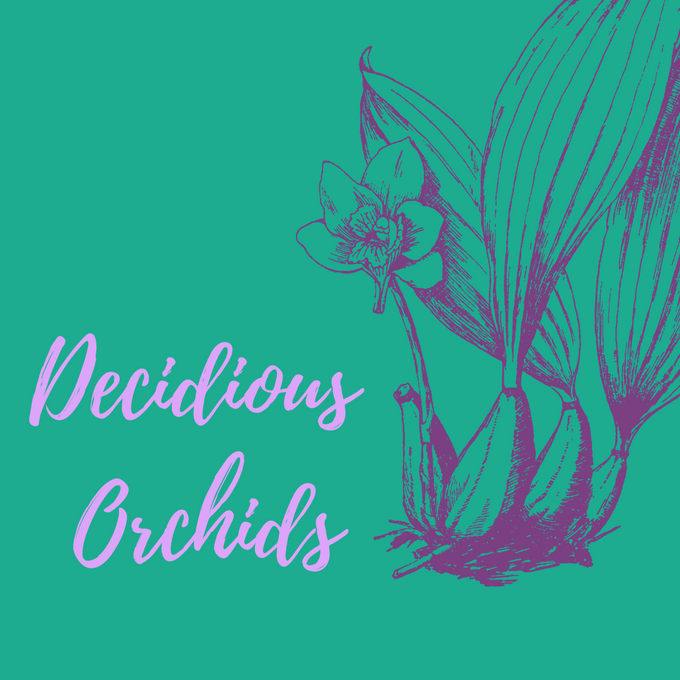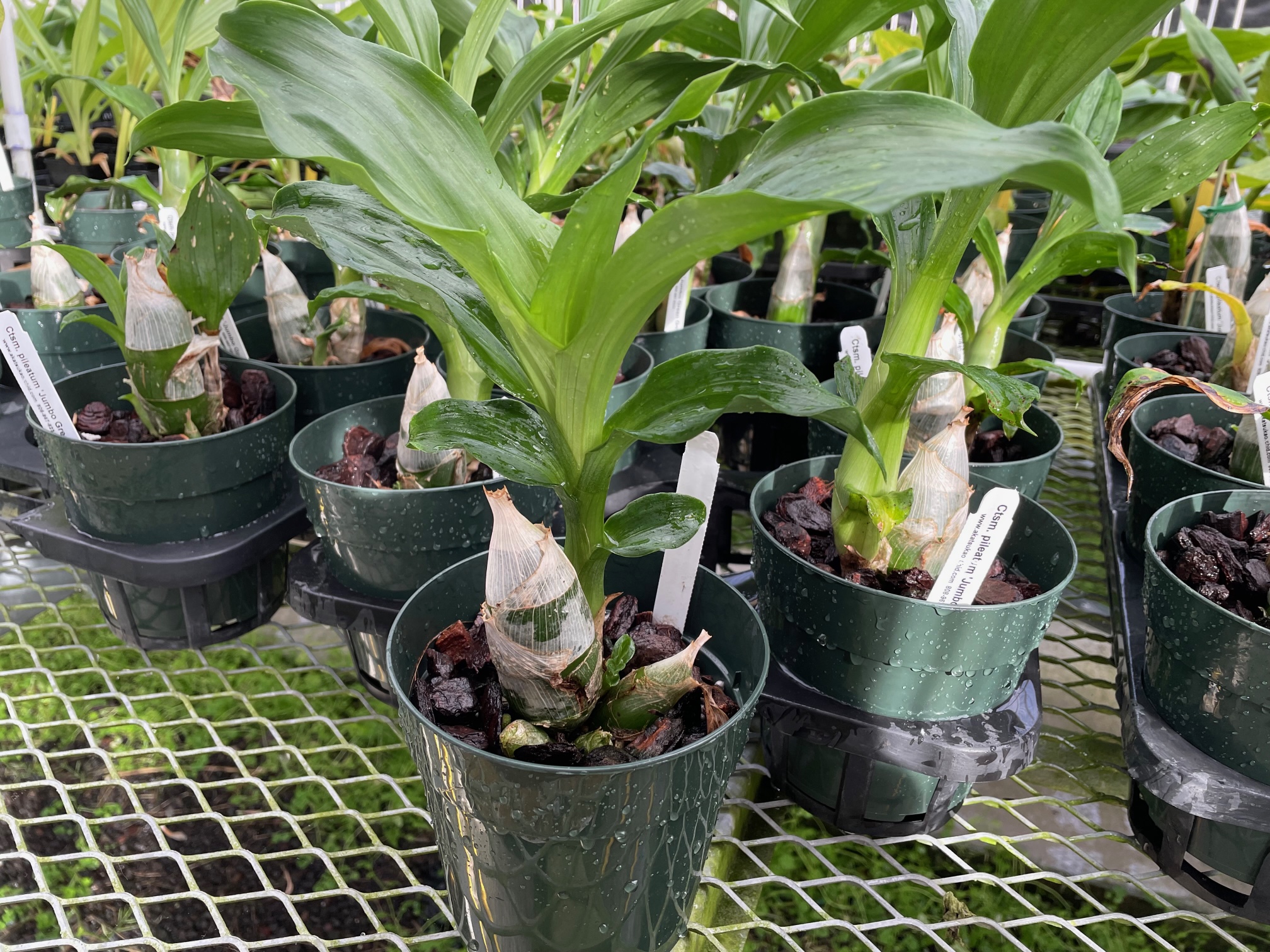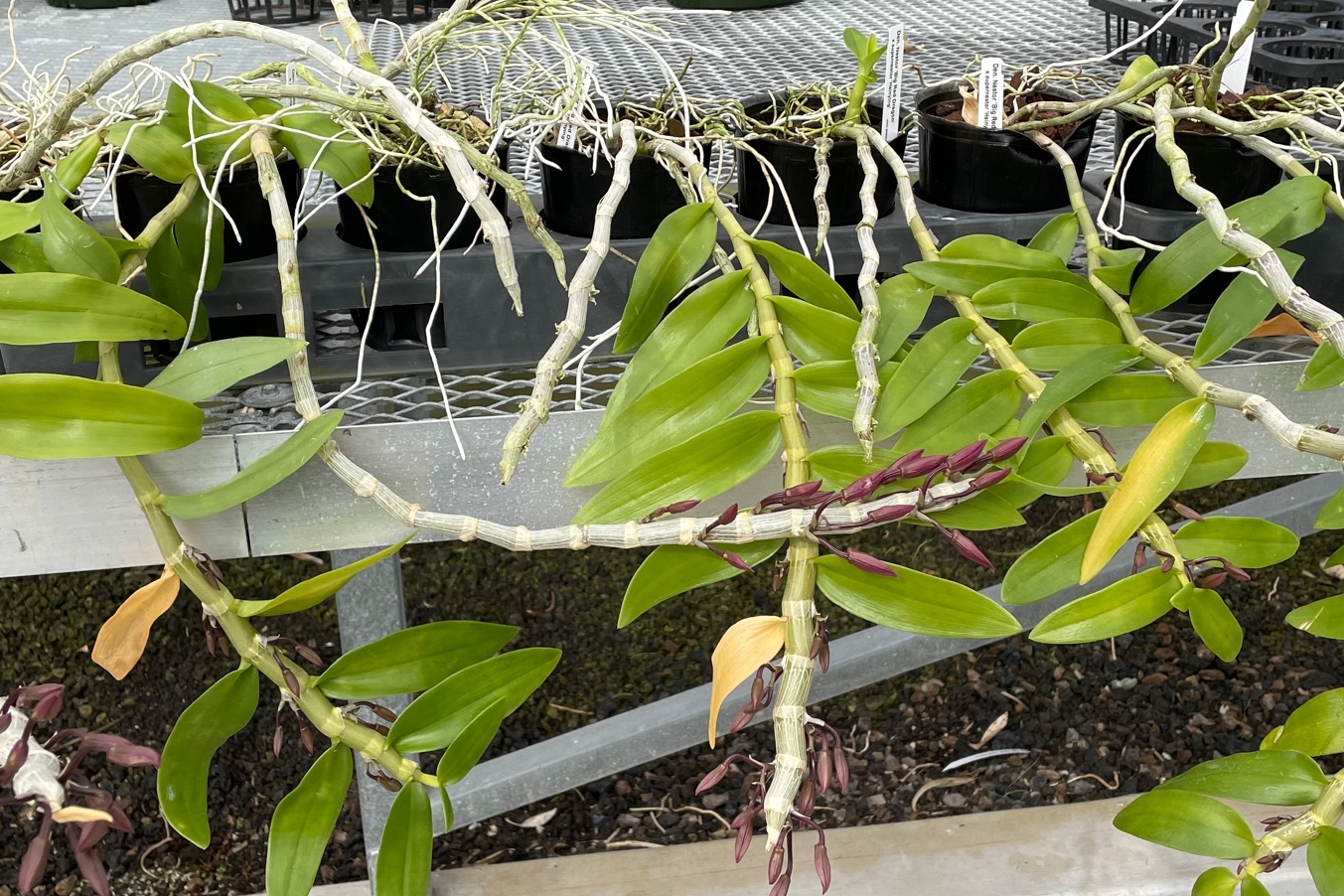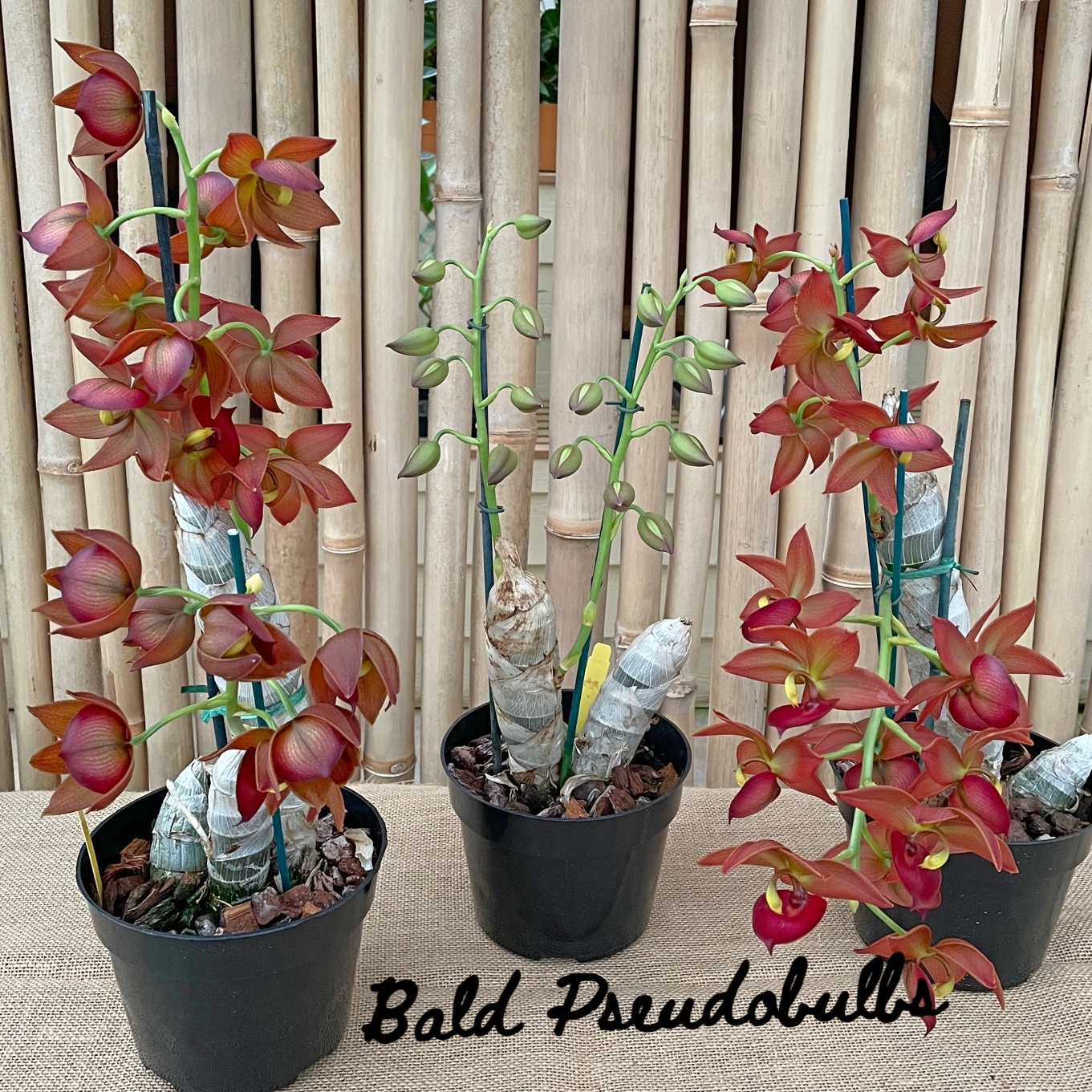
Deciduous Orchids (Bald Pseudobulbs)
Posted by Kamaile & Corinne on Nov 22nd 2022
The loss of leaves or a bare pseudobulb on any plant can be alarming; it can sometimes be a signal for help or it may also be a natural part of the growth cycle but, how do we know?

The first thing we want to consider is the type of orchid and whether or not it is Deciduous or Semi-Deciduous and will naturally lose their leaves as part of their growth patterns. Deciduous orchids lose all their leaves once per year. Semi-deciduous orchids will drop the leaves on older or mature canes and pseudobulbs but will keep those of new growths.
The act of shedding leaves is just a small part of the lifecycle of these plants historically brought on by the changing conditions in nature and the increased difficulty for survival combined with the need for preservation.
Both types (Deciduous and Semi Deciduous) will usually go through a dormant or resting phase (typically during the winter) where there will not be any active growing to conserve energy.
At this time, these orchids will not utilize much of the water and nutrients it has stored in their canes so watering will be greatly reduced and fertilizing will be unnecessary. The frequency of watering will ultimately be determined by your environment. Watching your new cane for slight shrivelling will be the best indicator that it is now time to lightly water your orchid.
Let’s briefly go over a few orchids that display these characteristics.
Deciduous Orchids
Dendrobiums, Catasetinae, and Lycaste orchids are some of the most familiar types whose leaves will yellow and drop off.
Dendrobiums are among the most commonly grown orchids. Certain varieties will develop an unpleasant almost concerning spotting on its leaves before falling. Do not worry, this is completely normal.

- Dendrobiums like the two “Hono hono” type species listed below (and their hybrids) will generally lose all their leaves before blooming.
- anosmum
- parishii
The older canes on these Dens will remain bare until they shrivel and dry out entirely and are no longer utilized for water and nutrient storage. For the first few years after blooming, these bare canes should generally NOT be removed. New canes will grow and the cycle will continue annually.
Latouria Dendrobiums like the Den. Roy Tokunaga and certain species like the Den. smilliae can rebloom from the older bare canes.
We’d like to next highlight those of the Catasetinae Subtribes as one of our favorite varieties, The Black Orchid,
Monn. Millennium Magic 'Witchcraft' AM/AOS falls into this group.

- Catasetinae Subtribe
- Catasetum
- Clowesias
- Cynoches
- Mormodes
- Monnierara
- &hybrids of these types
These orchids will lose their leaves in the fall or winter during which they should not be fertilized. At that time, most Catasetums will not need one drop of water and some will not require any light. A good rule of thumb to follow is if the orchid loses ALL of its leaves, it will NOT need ANY water, while orchids with leaves on their newest growth WILL typically require some water.
The Lycaste genus is the last of the deciduous types we’d like to discuss. These are deciduous in various degrees. Lycaste aromatica flowers from leafless pseudobulbs while types like the skinneri will retain their leaves at flowering. When leafless, deciduous species that shed their leaves completely should be kept almost completely dry. After pseudobulbs form on evergreen species, these should be kept only slightly drier than normal.
Semi Deciduous Orchids
Dendrobium nobiles are one of the semi-deciduous dendrobium orchid species. These orchids will drop the leaves on older, mature canes. It should not lose leaves on new and young growths and will typically occur before blooming.
Many Dendrobium-Phalaenopsis and Dendrobium hybrids will tend to fall under this category. Many of our Den-Phals will slowly drop some of their leaves while blooming but will retain much of the leaves on some of the older canes and will surely keep the leaves on its new growths.
